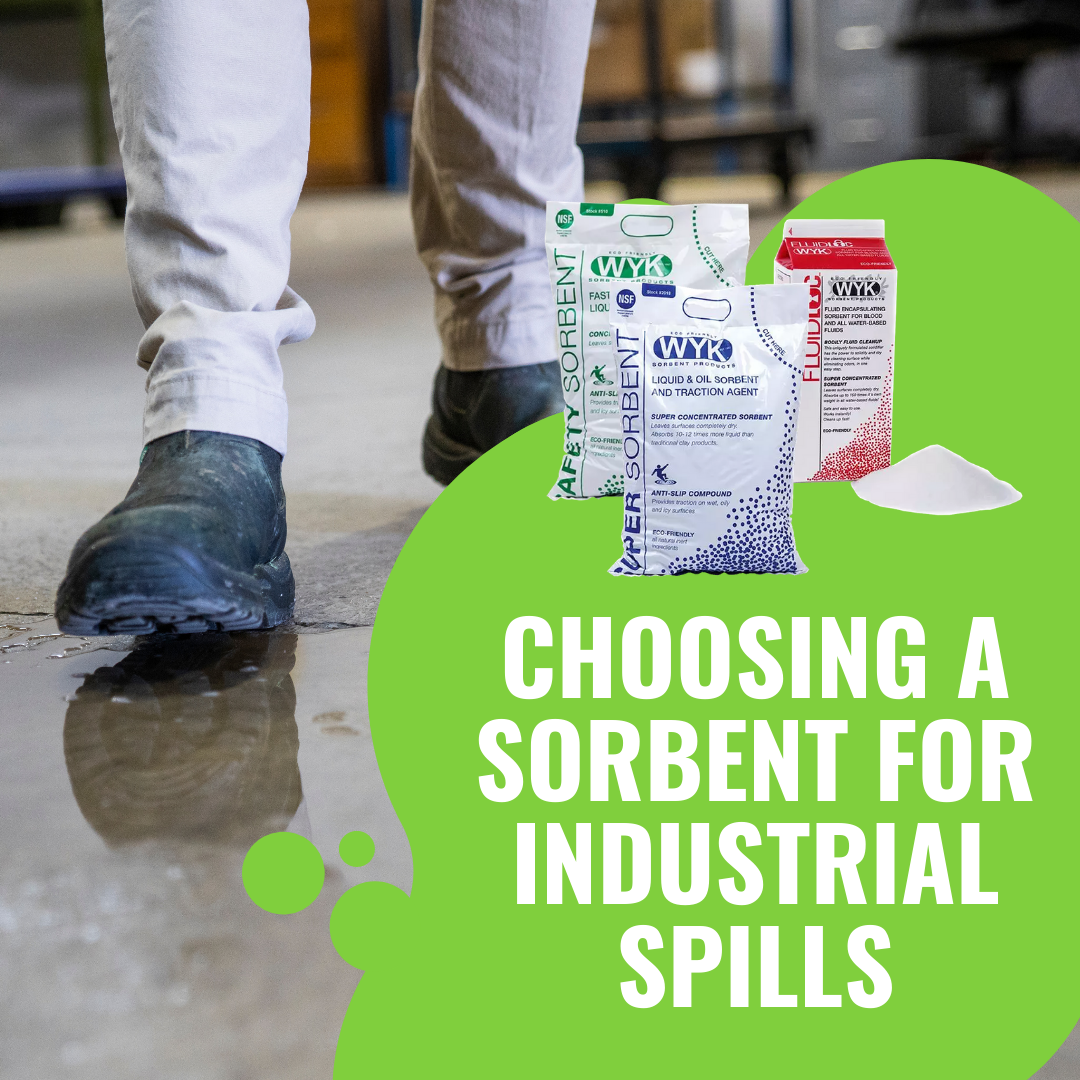We use cookies to make your experience better. To comply with the new e-Privacy directive, we need to ask for your consent to set the cookies. Learn more.
Choosing a Sorbent for Industrial Spills
When working with potentially hazardous liquids, proper spill prevention practices are essential — but even with precautions, the occasional spill is inevitable. Sorbents allow for quick containment by adsorbing liquids, often neutralizing hazardous materials in the process. Whether you’re working with lift truck batteries, cleaning organic spills in a processing plant, or adsorbing petroleum from contaminated water, sorbents play a crucial role in spill response.

For a sorbent to work effectively, however, it needs to be appropriate for the spill. The easiest way to choose the right sorbent in an industrial setting is to simply read the label; if your operation typically encounters oil spills, for example, purchasing oil-specific spill kits will keep you prepared. With that said, sorbents use a range of materials and ingredients. Managers can make better purchasing decisions by understanding the differences between the products. This is particularly important at larger operations that might need to stock various sorbents for different types of hazards.
First, let’s define some crucial terms: Per the EPA, absorbents are materials that swell by 50 percent or more, and the absorbent “must be at least 70 percent insoluble in excess fluid.” Adsorbents have a liquid coating, and their solid material swells less than 50 percent in excess liquid. Sorbents can be made of synthetic, natural organic, or natural inorganic materials, and a variety of spill control options are available for different needs.
Common types of industrial sorbent kits include:
Oil Selective Spill Kits - These sorbents soak up oil, leaving other fluids behind. The ingredients (commonly polypropylene or cellulose) are less dense than water and are hydrophobic. They attract petroleum-based liquids and are therefore ideal for situations in which oil needs to be recovered.
An example of this type of sorbent is the WYK Sorbents Oil-Selective Spill Kit, which features sorbent socks, pads, booms, and pillows.
General Purpose and Universal Spill Kits - Despite their name, general spill kits are not intended for use on all substances; these sorbents are not intended for aggressive liquids (specifically, strong acids and bases), but they can handle most water-based and oil-based fluids. An example of a universal spill kit is WYK Sorbents' Super Sorbent.
Many general sorbents are incompatible with hydrofluoric acid (hf) or compounds containing hydrofluoric acid, and using them on these liquids can create a hazard. General-purpose spill kits work well in situations where workers might need a single product to address a variety of spills — but managers should ensure that the kits are clearly labeled and stored to prevent them from being used on aggressive fluids.
Hazmat, Odor-Eliminating & Neutralizing Spill Kits - Aggressive and hazardous liquids require an appropriate response. Here, buyers need to take care to match the sorbent to its intended use. Some sorbents are formulated to sanitize — for instance, FluidLoc, intended to solidify blood and other water-based fluids — or for odor elimination, as with the WYK Fresh deodorizer sorbents.
When a spill is suspected to contain acids, personnel should always use a neutralizing sorbent. Products like WYK’s AcidSafe use color-changing ingredients that can show when the spill has been appropriately neutralized, allowing for safe cleanup. Other sorbents are designed to target specific hazards such as mercury; Mercury Eater, for instance, is a mainstay at medical and scientific facilities.
After choosing appropriate sorbents for your operation, make sure to train personnel. Sorbents should be kept in clearly visible containers or in appropriately outfitted spill response stations, and if a single facility uses different types of sorbents, proper labeling should be instituted to provide staff with the information they need to address spills quickly and effectively.
Make sure to keep enough sorbent in your inventory to address emergencies quickly, and as always, read the product literature before emergencies occur — building familiarity with the product will pay off in the long run. For more information on sorbents or to discuss your organization’s needs, contact the Solus Group sales team at (314) 696-0200.
